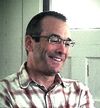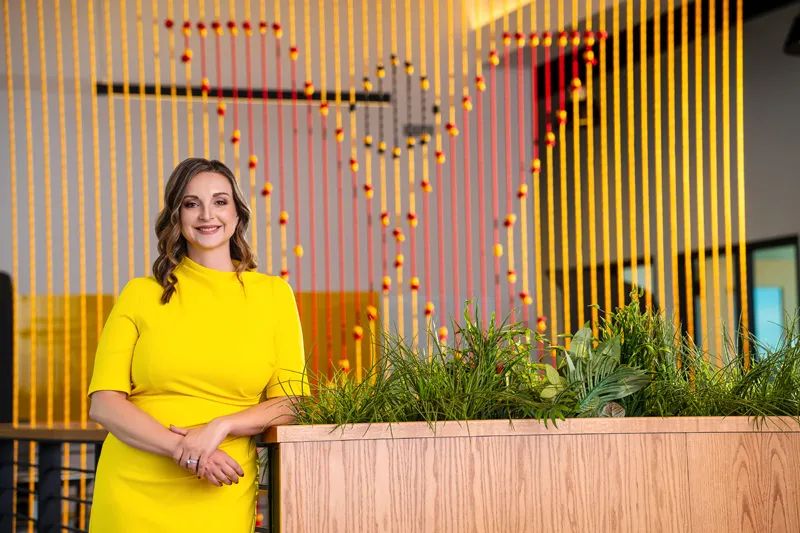
Paving the Way for Adventure
Toby O’Rourke is at the top of a homegrown corporation
If Toby O’Rourke had begun her working life with the goal of becoming president and CEO of Kampgrounds of America, it’s hard to say what else she could have done to prepare herself for the job.
In a varied career that took her to Chicago, Denver and Washington, D.C., she acquired the skills KOA was greatly in need of when she went to work for the Billings-based corporation. On the job, she learned what else she needed to know and then, as CEO, she drew on her experience from the very start of her career to help KOA weather the storm of the Covid pandemic.
As a bonus, the job with KOA brought her back to her home state.
“After I had my first daughter, I wanted to get closer to my family, and my sister being in Montana was a big driver behind that,” Toby says. “It was really important that our kids grow up together. It was all driven by family.”
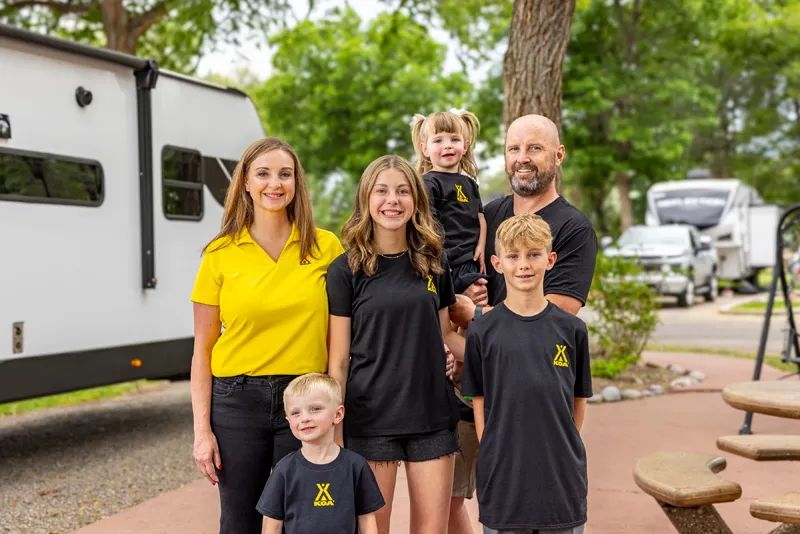
Now, in her fifth year as president and CEO of the world’s largest system of privately owned campgrounds, a business founded 62 years ago in Billings, Toby is at the center of a camping boom that continues to rack up record numbers.
According to KOA’s 2024 Camping & Outdoor Hospitality Report — the company is also the leader in industry research — the number of households that reported having camped in the previous year has increased by 21.6 million over the past 10 years, a growth of 68 percent.
The same report shows that all types of accommodations have seen impressive increases — tent usage up 56 percent to 9.6 million a year, RV usage up 96 percent to 6.4 million, and cabin/glamping usage up 191 percent to 7 million. And many people who are camping are seriously enjoying it: since 2014, the number of households who camp three or more times a year went up 97 percent.
For all the difficulties and dislocations of the pandemic’s early days, Toby says, 2021 saw a “really big explosion” in the number of people who flocked to KOA sites, attracted by the ease of social distancing in the outdoors.
“We’re starting to see that level off a little now, but we’re still ahead of where we were headed into the pandemic,” Toby says.
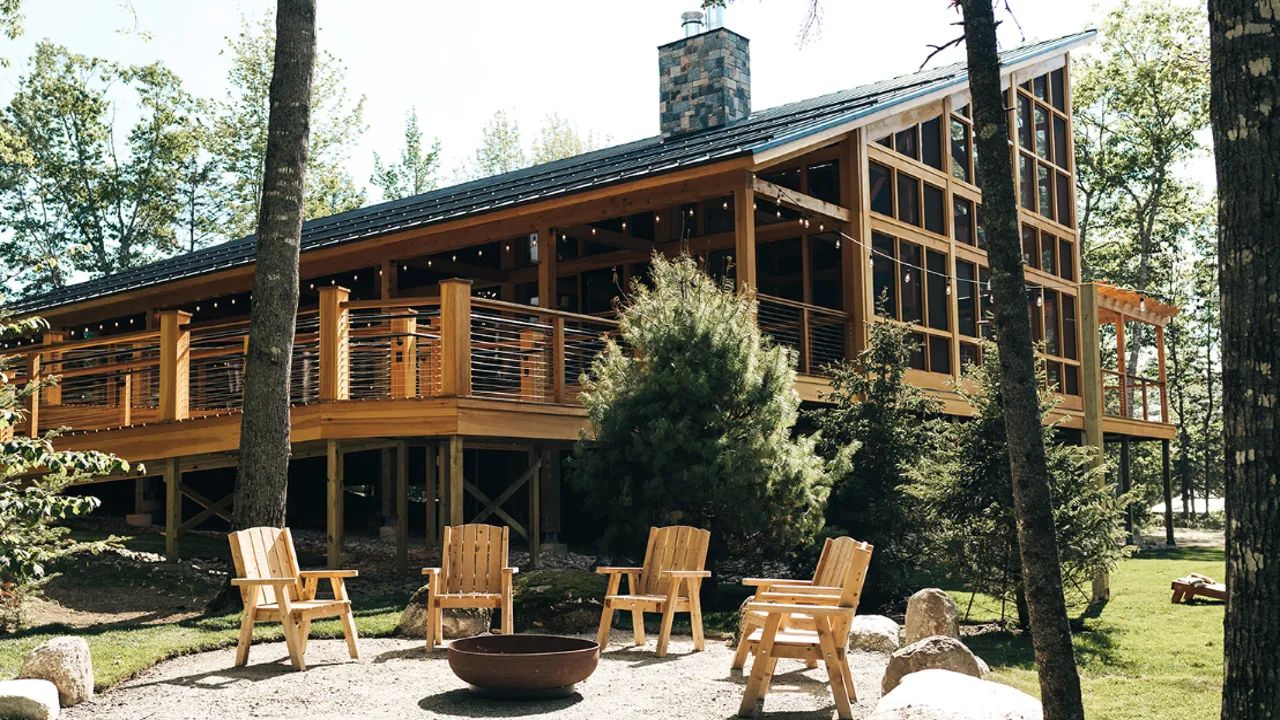
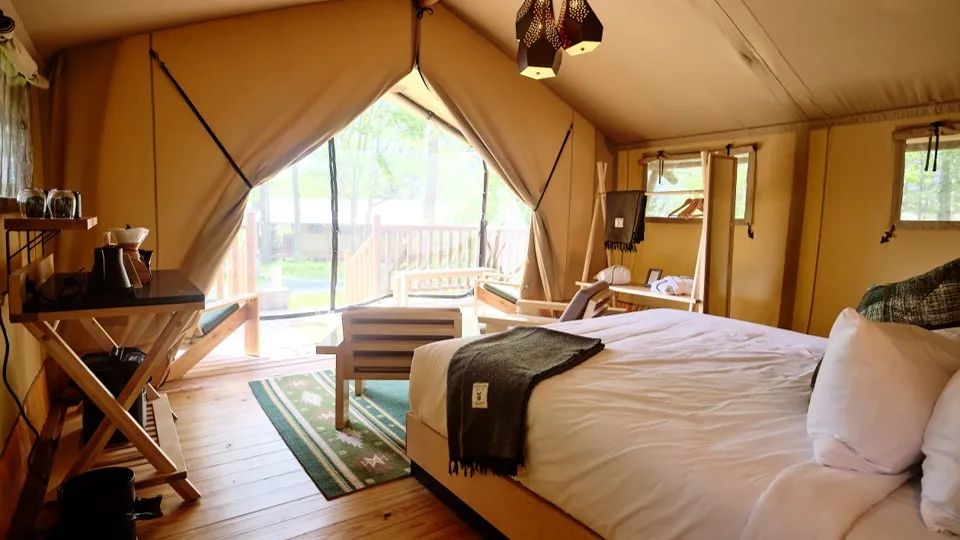
It was also early in the pandemic, in August 2020, that KOA went ahead with the long-planned opening of a new kind of accommodation — the Terramor Outdoor Resort in Bar Harbor, Maine. The glamping site features 64 tents with “highly appointed furnishings,” in Toby’s words, including bathrooms with showers, spa tents offering massages and other services, a main lodge with sit-down food service, and a swimming pool and hot tub.
Terramor had an occupancy rate of 77 percent that first year, and the numbers have stayed that strong since then.
“It opens the outdoors to a whole new segment of people,” Toby says, and KOA is looking to expand the brand all over the country, including Montana. “We would love to bring it here,” she says.
Toby grew up in Sheridan, Montana, a Ruby Valley town with a current population of barely 800. Her family was Catholic and her father was a big fan of Notre Dame football, and one Saturday afternoon when she was in the second grade, Toby remembers watching a Notre Dame game with him. She says she rolled over on the floor and told her father that she was going to attend Notre Dame.
She also remembers being very focused on that goal, figuring out how best to prepare herself to be accepted at the prestigious university. The preparation paid off, and when she went to Indiana, she found that Notre Dame was a lot like home, with a relatively small population and a strong sense of community.
She graduated with a degree in political science and a supplemental major in computer applications. Why political science?
“I really thought I was going to work in government,” she says. “I love international relations. I actually interned for Conrad Burns when he was a senator. I studied abroad and worked in Parliament. But I decided to pivot to computers right out of school and became a programmer, in large part because I love government and was fascinated by it, but I really hate politics. I’m not wired that way.”
After graduating in 2000, she moved back home to work for the Montana State Fund, a workers’ compensation insurer, as a programmer-analyst. For her next job, she moved to Chicago to work as a tax consultant for Deloitte, a business-services company, and then to another consulting job with STA Group, a similar business in Chicago.
While working in Chicago, she was also in school again, eventually earning a master’s degree from the Kellogg School of Management at Northwestern University. Transitioning to a marketing career, she worked first for Sara Lee, still in the Chicago area. Next, partly to get a little closer to Montana, she worked for WhiteWave Foods in Denver, where she eventually specialized in digital marketing.
That set her up for the job that brought her back to Montana, when KOA hired her as its first director of digital marketing in 2011. One of her immediate jobs was overhauling and updating the KOA website, and she proudly mentions that KOA.com logged 30 million visits last year.
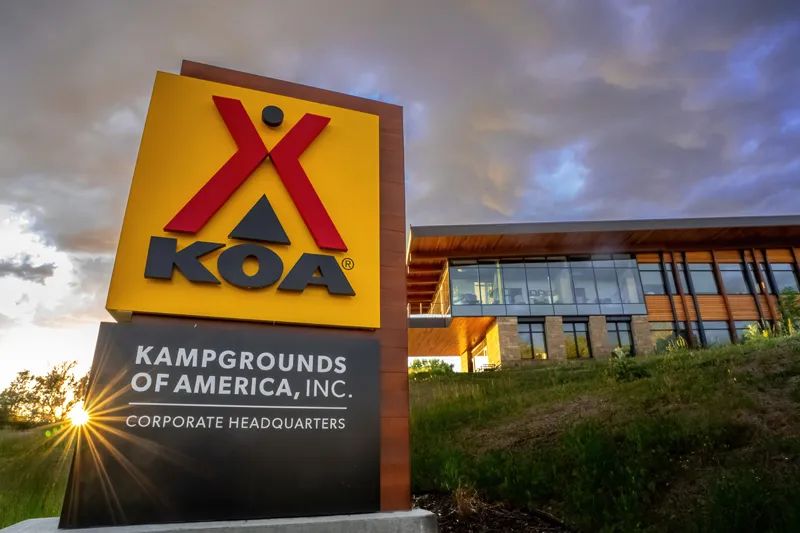
In addition to her work on the website, Toby also focused on digital marketing and planning. At the time, she says, she had no idea where her job with KOA would take her. At one point she even considered moving back to Chicago. But then she had a conversation with her predecessor, Pat Hittmeier, who confided in her that he was thinking she might be KOA’s next CEO.
“We were great partners,” she says. “I loved working with Pat. He’d been with the company for 38 years when he retired. He knew so much about franchising, in particular, and operations. And I knew marketing, so we could balance each other out really well. I learned a lot from him and think he also learned a lot from me about ways we could take the brand in different directions.”
She got to work with Pat for five years before he retired, during which time she was promoted to head of franchise operations and then president, which gave her a “holistic view” of the organization.
“When Pat was ready to retire, it was really a seamless transition because we had been working toward that for a few years,” she says. She was named CEO in 2019, becoming the first woman and the youngest person ever to hold the position.
Pat says it felt a little bit like fate that Toby came along when she did. KOA had always been essentially a marketing company, he says, but Toby represented a generational change and was perfectly at home in the digital world, just when digital marketing became all-important.
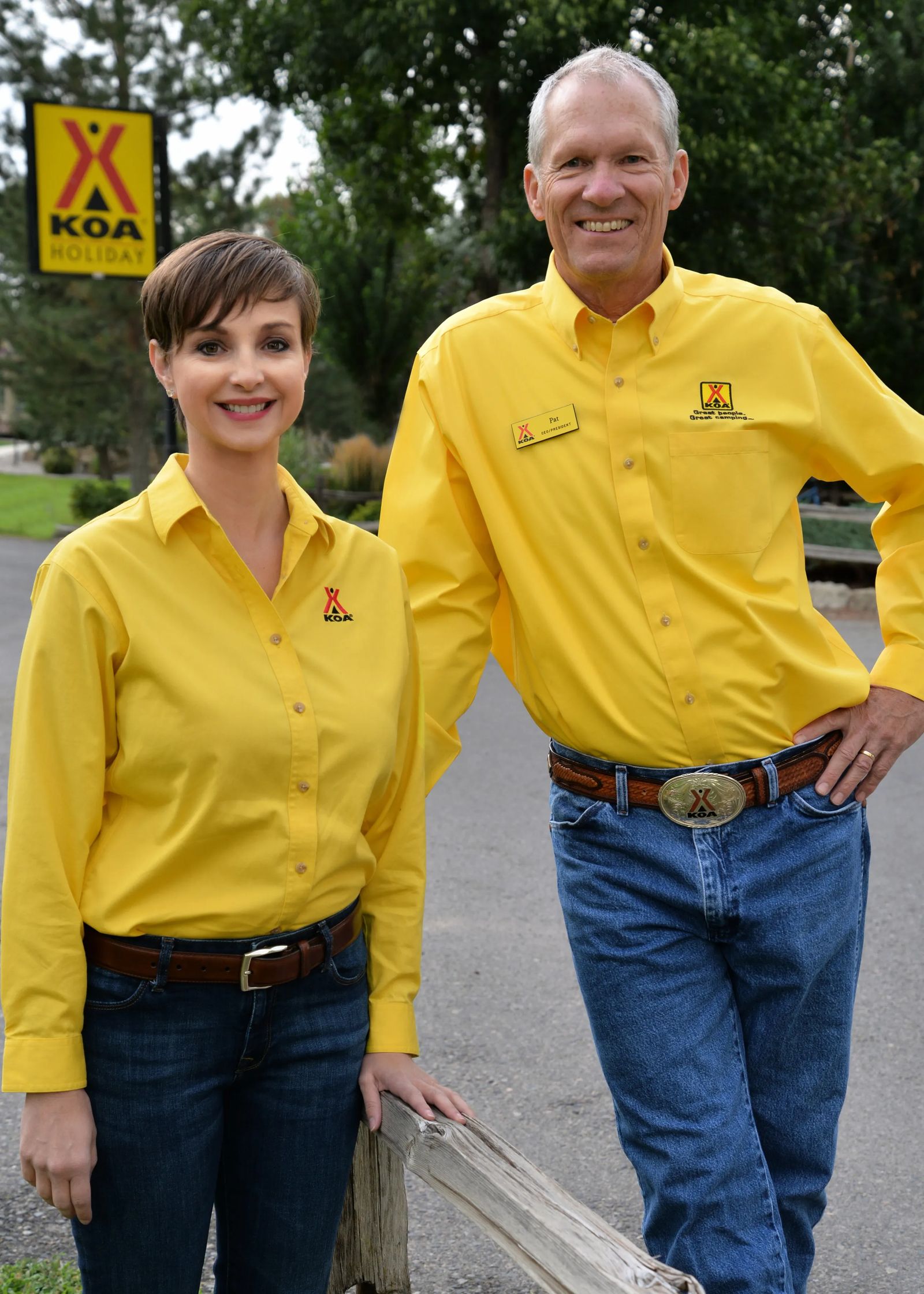
She also earned the respect of her colleagues, Pat says, and it was readily apparent that “she was somebody really special.”
“It was very fortunate, and it couldn’t have worked out better,” he says. “I’m really grateful for everything Toby did.”
But Toby had been CEO for less than a year when Covid shut the world down.
“The biggest challenge for us was campgrounds being closed,” she said. For several months, she concentrated heavily on lobbying at the state and federal level, trying to convince government officials that campgrounds, where social distancing was the norm, should be reopened quickly. It was another perfect role for her — working with governmental agencies and officials without getting involved in politics.
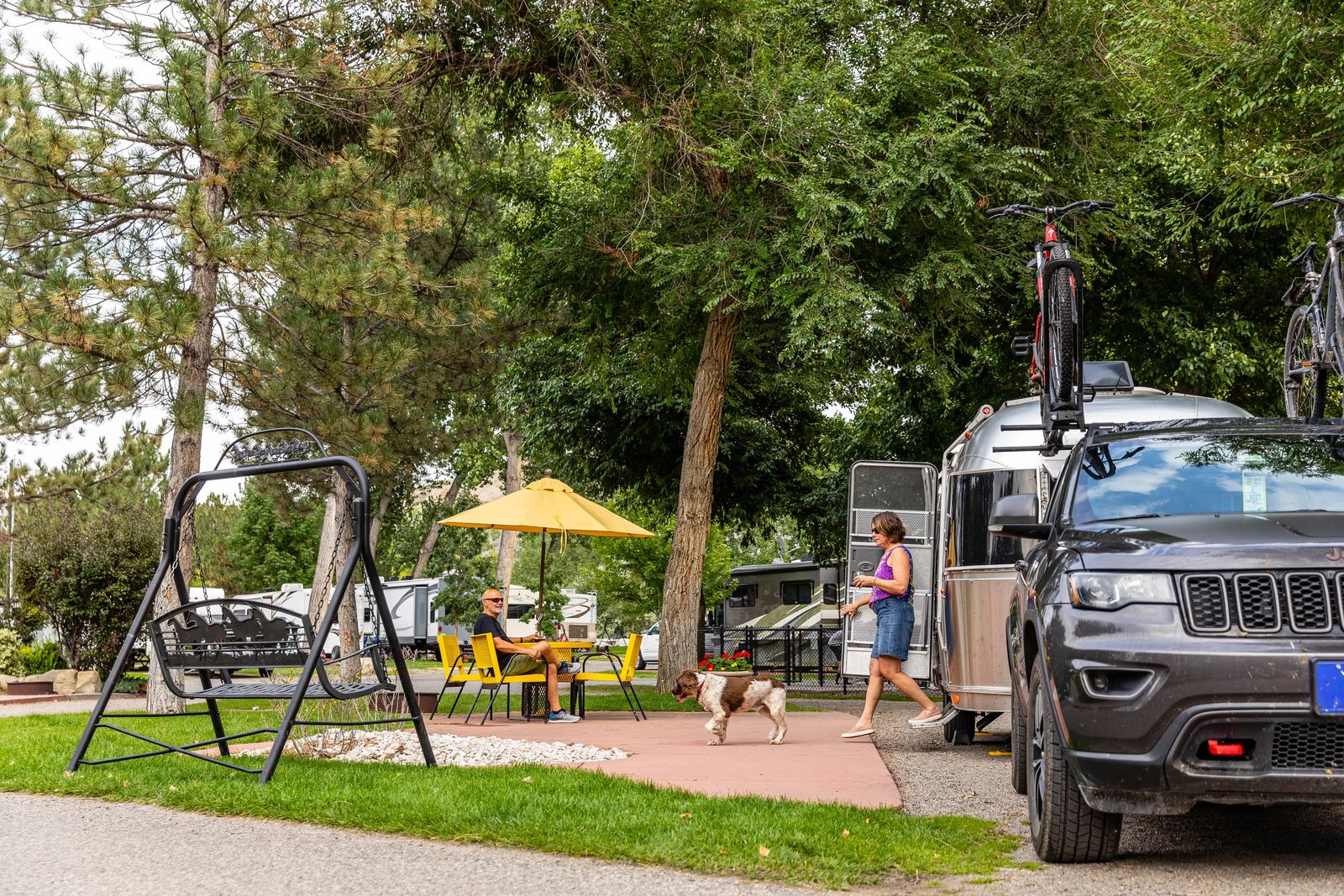
By June of 2020, all KOA campgrounds in the United States were open again, though it took a little longer to reach that point in Canada. Since then, Toby’s has been presiding over an era of steady growth, and a steady expansion of “brand segments.”
“Everything we do really comes back to data and research,” Toby says, and a lot of research went into one of KOA’s major projects, an initiative called Campgrounds of the Future. Research for the project began in 2018, looking at trends in technology, sustainability and how people were engaging with varied forms of travel, with all those factors giving a look at what the camping industry would look like in 2030.
“That was my baby, that was really my project,” Toby says. One concept that came out of that initiative was incorporating pet sites at KOA campgrounds. That led to “paw pens,” fenced-off areas next to RV pads, or to fences that ran around an entire RV site. Another concept was “elevated RV sites,” where RVs park on the ground, but campers then walk up to an elevated deck.
Various KOA franchisees also started incorporating solar collector on-site, and others, including Terramor, included workforce housing in their plans. In Key West, Florida, where a KOA campground was destroyed by a hurricane in 2017, the company rebuilt based on Campgrounds of the Future concepts. When the campground reopened a couple of years ago, it featured bioswales, landscape features that collect polluted stormwater runoff, allowing it to soak into the ground and filter out the pollution.
The Key West campground also has electric-vehicle chargers and offers a blended hotel and campground experience. It has 44 hotel units, making it possible for people staying in RVs to camp with friends who don’t have RVs but are free to use all of KOA’s on-site amenities.
Elsewhere around the country, KOA has been adding new features and new accommodations to traditional campgrounds, including tree houses, yurts, repurposed cabooses and canvas tents with bathrooms. For all campers, but younger ones in particular —71 percent of campers in 2022 were Gen-Z and Millennials — KOA has been keen on providing high-quality, high-speed Wi-Fi connections at its campgrounds.
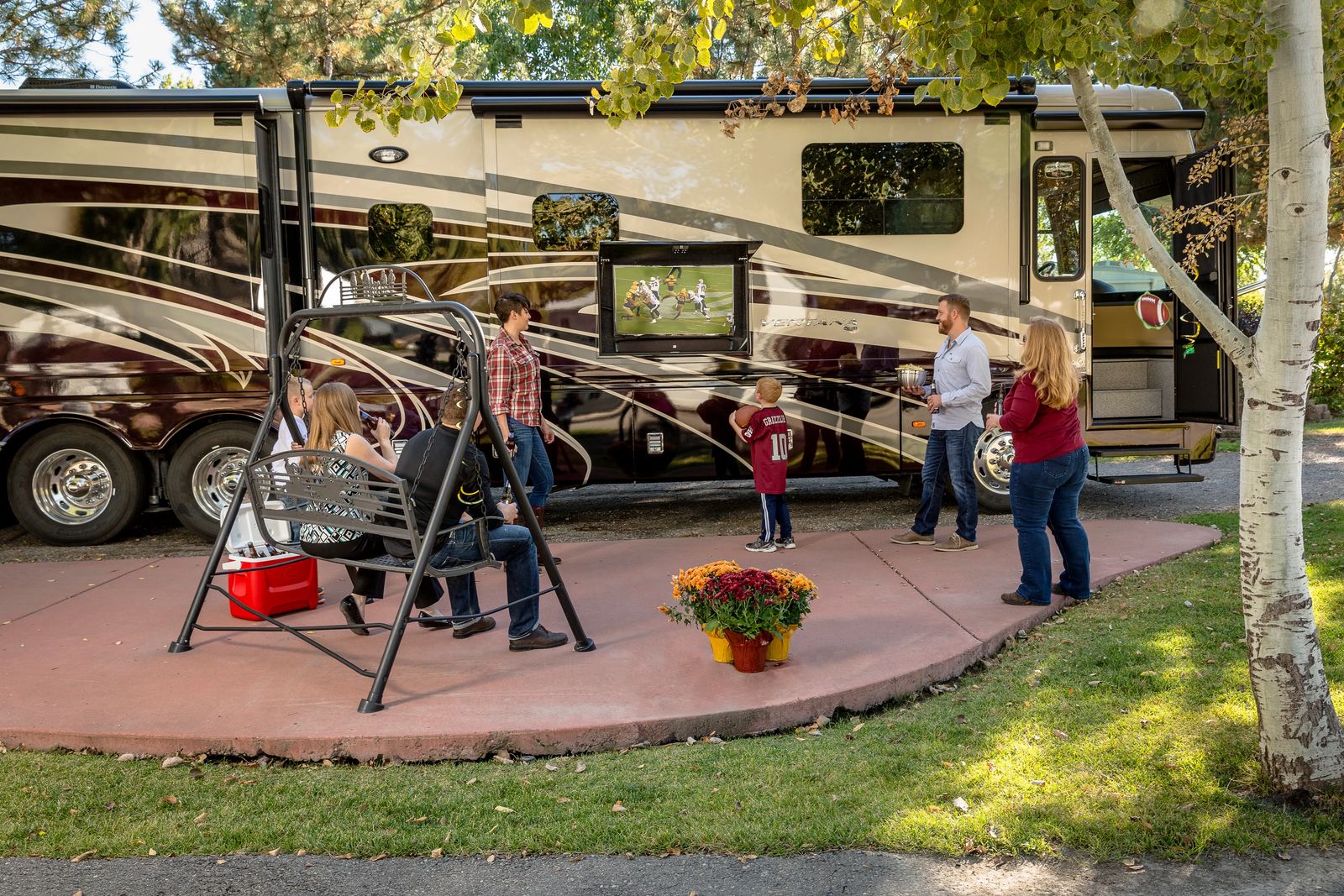
But for all the emphasis on new forms of camping, Toby says KOA can’t lose sight of the fact that RV users still make up 85 percent of their customers. “That’s definitely our bread and butter,” she says.
KOA currently has about 515 sites in the U.S. and Canada, 50 of them owned outright by KOA and the rest owned and operated by franchisees. In the past few years, the company bought back the Billings KOA — the original campground, which KOA founder Dave Drum opened in 1962 — as well as two campgrounds in West Yellowstone and one south of Livingston.
A coincidental perk of working for KOA is that Elkhart, Indiana, just down the road from South Bend, home to Notre Dame, has become known as the RV Capital of the World. There, 45 manufacturers produce 85 percent of the RV units in the United States.
As a result, Toby has made occasional work-related trips to Elkhart, allowing her to stay in touch with her alma mater.
“I’ve gotten some behind-the-scenes tours of the football stadium and various things, all through the RV connections I have,” she says. “It’s just really serendipitous that it’s all come full circle.”
Since moving here in 2011, Toby has also become a big booster of Billings and the surrounding region.
“When I was trying to get home, I was really targeting Bozeman and Helena, because that’s what I knew, because I was from western Montana,” she says. “Billings was very new to me.” She serves on the executive committee of the Billings Chamber of Commerce and the board of trustees for Rocky Mountain College, and she has encouraged other members of the KOA leadership team to get similarly active in the community.
She and her husband, D.J. Clark, have four children between the ages of 13 and 2, and they live on the West End, a seven-minute drive from KOA’s new headquarters. That stunning building, which is full of works from Indigenous artists from the Western U.S., opened last full off 32nd Street West, overlooking the Transtech Center, a high-tech business park. Her husband, a civil engineer, is a principal with Sanderson Stewart, an engineering company located just down a short hill from KOA.
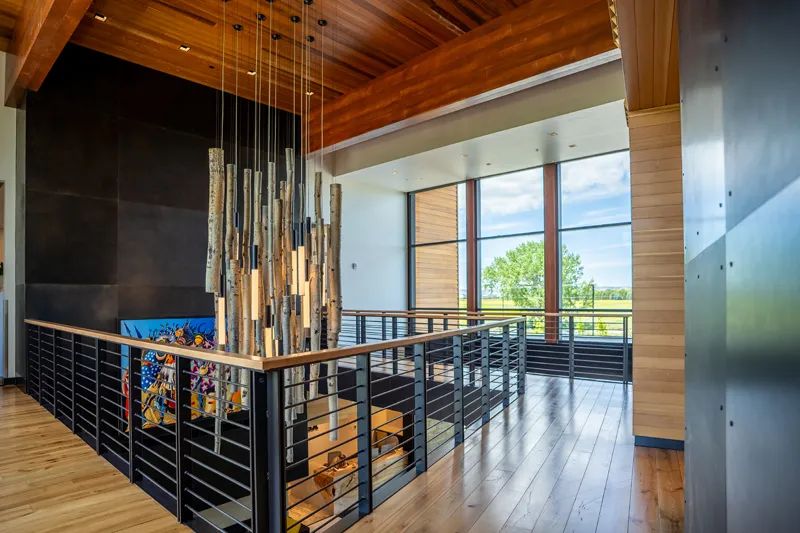
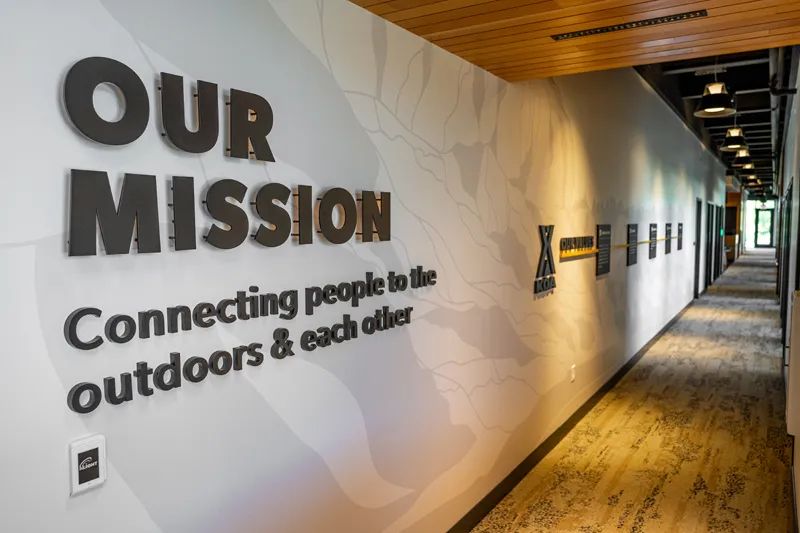
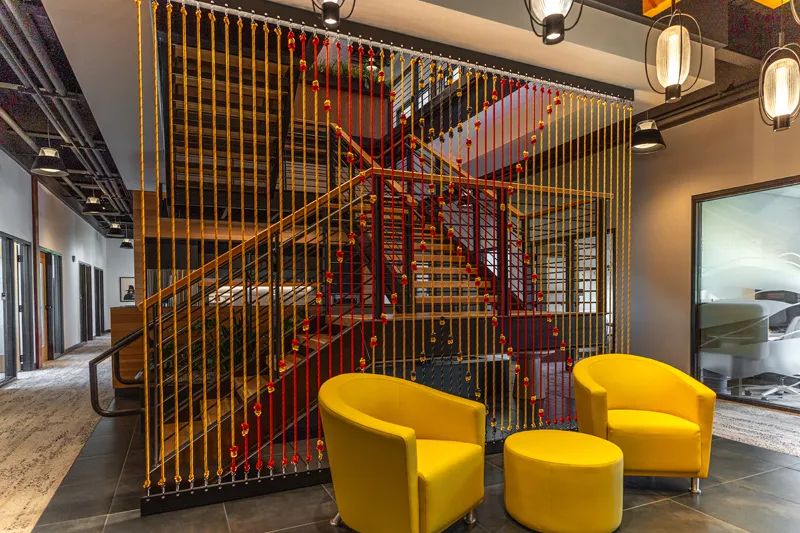
Toby is also proud of the KOA Foundation, which was launched a couple of years ago and is funded by 1 percent of KOA’s pre-tax profits. The foundation has provided money for oncology camps across the country, as well as a program to introduce inner-city kids in New York to camping. Locally, the foundation has donated money to ZooMontana.
One personal goal of Toby’s is to raise KOA’s profile in the community.
“KOA, for a long time, has really flown under the radar in Billings,” she says. “We consistently hear that people didn’t even know KOA was headquartered here.” In fact, she adds, when employees tell others they work for KOA, most people assume they work at the campground along the Yellowstone River.
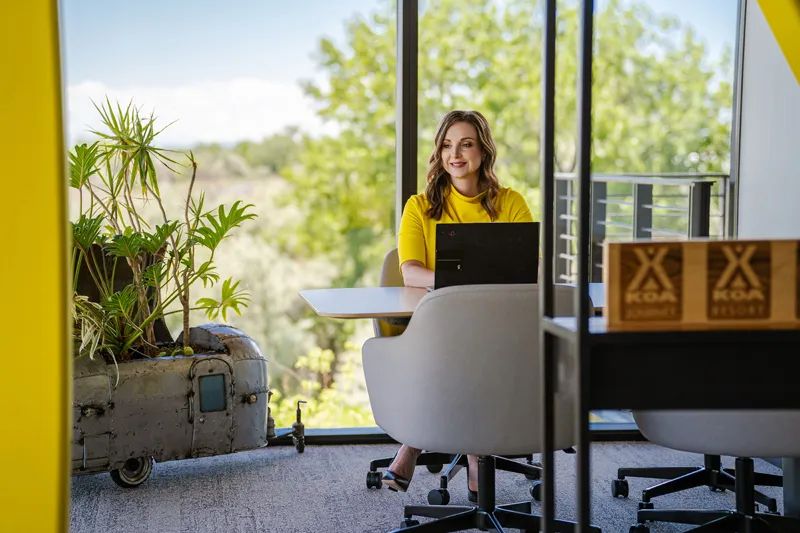
Toby says KOA also wants to support the expansion of amenities and experiences that will attract people to Billings and persuade young people to stay here. ZooMontana and the city’s growing trail system are examples of things she wants to see more of.
“We think there’s tons of potential to continue to evolve and do more,” she says. “Our whole mission is centered around getting people outside, and we want to be big supporters of that. Those are the things I would love to see develop, not just because I work for KOA but because I live here and I’m a mom of four kids.”


